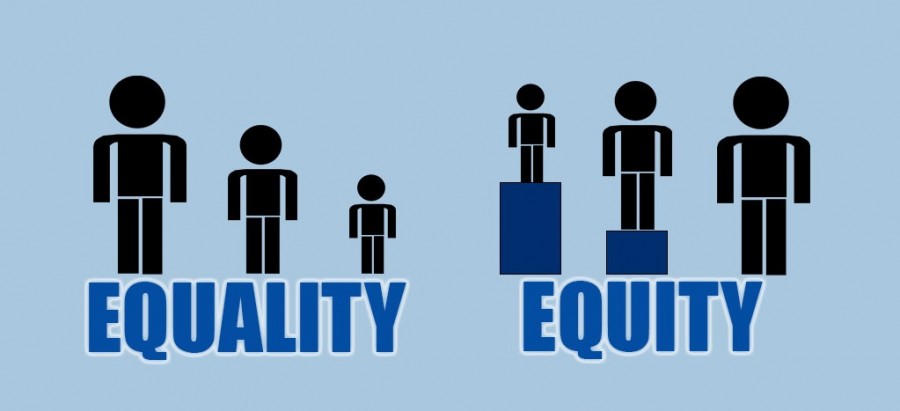Social issues highlight differences between equity, equality
February 23, 2016
When I hear talk of equality, people often measure its standards in terms of the United States of America and the rest of the world.
Equality is not necessarily a bad ideal on which to build a country. Ideally, equality assumes that everybody has the same status, rights and access. However, a nuance of equality is that the right conditions must exist for it to be achieved.
While equality is ingrained in the fabric of the United States, this same society is experiencing social issues that challenge those fundamental beliefs, with some of these issues focusing on race and the continued aftershock of racial inequality from the past.
Slavery is probably the most salient example of racial inequality in history and served as an important reason for the 13 colonies becoming the United States.
State population size determines the number of votes a state has in Congress and slave-owning states’ populations were predominantly slaves, which created a disparity in the congressional power of slave-owning states. The solution to this was a policy that, in effect, made each slave an equivalent of three-fifths of a person when counted in a census.
This was considered equality. Fast-forward to the era of Civil Rights, African Americans were no longer slaves, but existed in a state of having equal status, but unequal access.
The point of this journey into history is to address the misconception that equality means everyone is equal. We need to strive for equity as opposed to equality, because for something to be equitable, it must be fair and just.
The difference between equity and equality is not merely a racial concern; it applies to every social issue. Think of the difference between equality and equity with this example: Imagine that a group of people were given pairs of shoes. To make conditions equal, each person must receive a pair of shoes, regardless of their size. If conditions were equitable, each person would receive a pair of shoes that were their size.
There is not a single vision of equity as it varies between circumstances. Being able to vote while not having access to the information to make an informed decision is equality, but not equity. Having the right to public education, but not the conditions in which to participate, is also inequity.
Just because something is equal does not mean it is fair and/or just. Consider the difference between equality and equity the next time you encounter an issue that seems like it should be solved because everything is “equal.”







